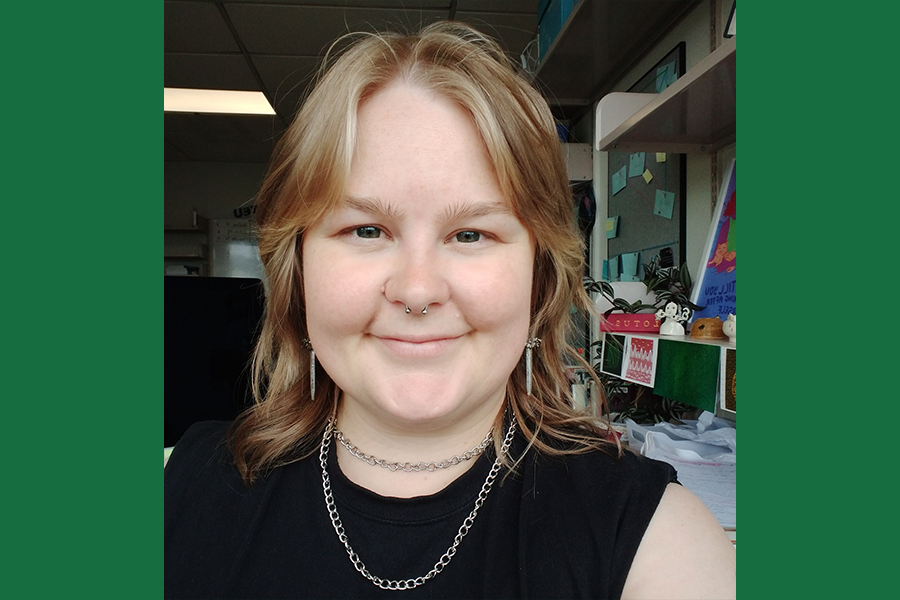
PhD candidate Erin Silver is investigating what kind of role NGOs could play in helping transform the criminal justice system.
Welcome to the fifth instalment in our new series ‘Introducing postgraduate SGSC’, which focuses on postgraduate students within the Sociology, Gender Studies and Criminology Department. In this edition we chat with Erin Silver about their research into the role NGOs could play in transforming the criminal justice system. There are links at the end of this story to the first instalments of the series.
Could Aotearoa New Zealand’s social service NGOs play a role within transformative change of the criminal justice system?
This is the question PhD candidate Erin Silver, of the Sociology Department, is investigating.
Silver’s research starts from the viewpoint that there is something wrong with the current criminal justice system, and that there are some “really obvious” things that support this argument.
“The way [prison] impacts Māori, in particular, and the way that it is in breach of Te Tiriti o Waitangi which guarantees Māori their rights of Tino Rangatiratanga, which includes processes of justice,” they say.
Finding an alternative to prisons is “vital” for society because of how much harm they to do both individuals and the wider community, Silver says.
“And so then we get to this idea of, if not prison, then what else?
“If this is a really important thing to change about our society, so that people can live in thriving ways, and that Māori can exercise Tino Rangatiratanga, we need to understand how we can get there.”
People in favour of prisons often argue that the idea of going to prison deters people from committing crime, and that it can help rehabilitate criminals. However, a lot of research from around the world has shown that those arguments are “demonstrably not true”, Silver says.
“For me, a missing piece of that puzzle is that place of social service organisations and whether they’re part of the how, or whether they’re not.”
They will examine NGO social services that employ people like social workers, youth workers and public health nurses, and are designed to help people live better lives. Silver says that as a Pākehā person, it’s not really their place to evaluate Kaupapa Māori organisations.
An abolitionist approach would see a change within society that makes everyday life more manageable and reduces the amount of conflict between people, and communities would come up with solutions for any conflict that arose, rather than punishing people.
The same people who see this idea as a viable way forward also question whether any existing community organisations could step in and help implement some of the changes and solutions for conflict.
A critique of these organisations, however, is that many of them are partially Government funded, and they can hold a similar ideology as prisons, leading researchers to question if they can actually be “radical” or a part of transformative change.
“I guess that’s the kind of site at which my questions comes up and asks: can they be transformational, can they actually contribute to an abolitionism, or are they too involved in the system already?”
Silver says they are less concerned with imagining a specific alternative to prisons so much as how might society arrive at that alternative.
“Rather than having an exact destination, we’ve maybe got more of a compass that says ‘does this action take us in a more kind of emancipatory direction?’ Well that’s probably the right one to go in.”
Silver is about eight months into their research, and is at the point where they will start to apply for the ethics required to talk with social service employees and managers about what opportunities they have to contribute to radical change and what kind of barriers might be in place that would prevent them from being transformational.
-Kōrero by internal communications adviser, Koren Allpress